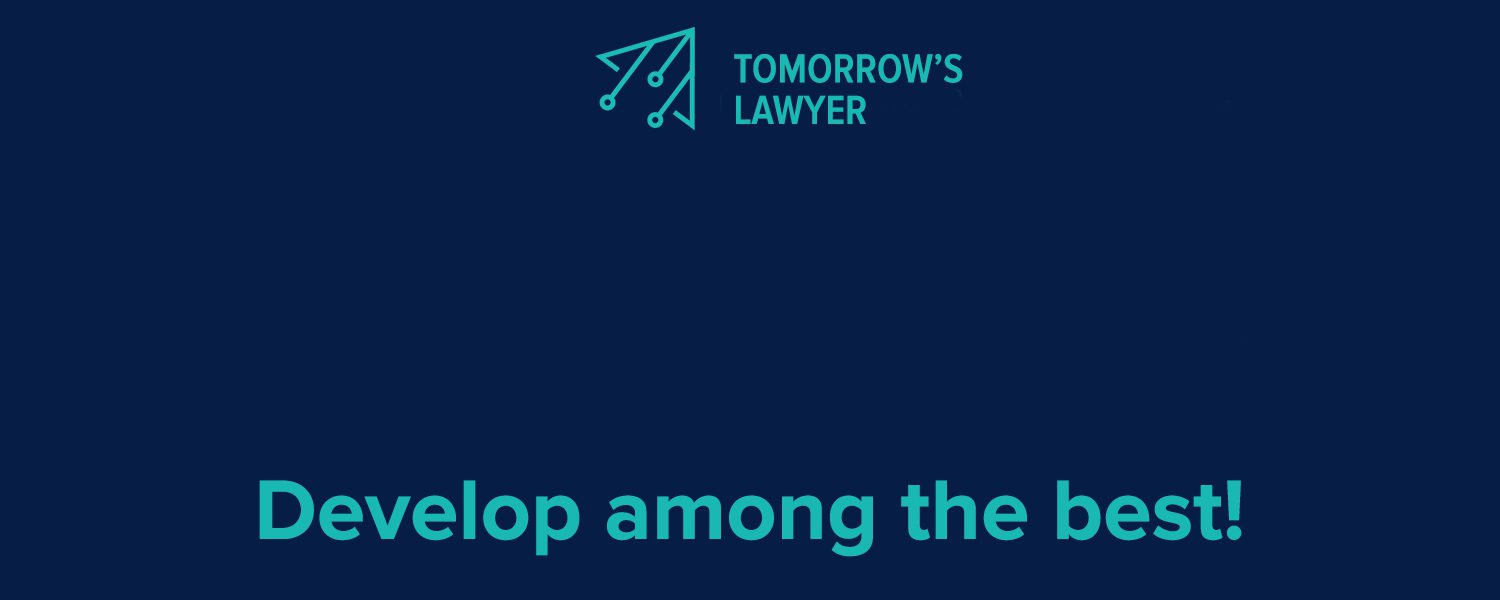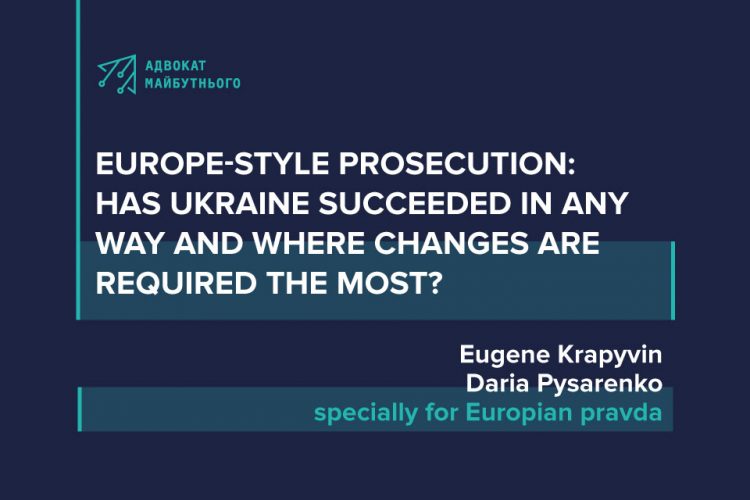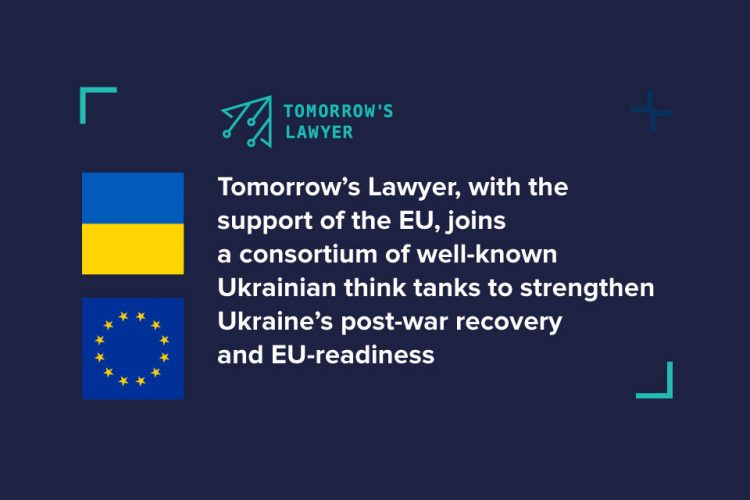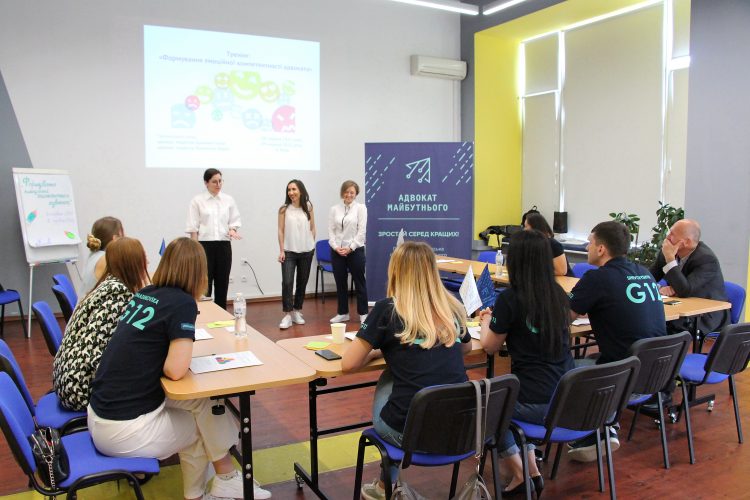


New Ethical Rules as a Mirror of Advocates’ Self-Government in Ukraine
“Yurydychna Gazeta” within the framework of the “Tomorrow’s Lawyer” Program launches a series of publications devoted to the changes to the Ethical Rules for Advocates (hereinafter – the Rules).
The purpose of this series is to attempt an unbiased analysis of these changes from the point of view of the necessity of their introduction, the scope, openness of development and approval, the order of disclosure, content, compliance with international standards of advocate’s deontology and assessment of possible risks for the legal profession of Ukraine.
Mr Dmytro Kuhnyuk – Attorney, Candidate of Judicial Sciences, associate professor of the department of the notary and executive process and the advocacy of Kyiv National University after Taras Shevchenko, expert of the “Tomorrow’s Lawyer” Program, Managing Partner of Melnyk, Kuhniuk & Partners.
The recent congress of Ukrainian lawyers held on June 9, 2017, approved the amendments to the Rules, which were published on the official website of the National Bar Association of Ukraine on July 18, 2017. Unfortunately, these changes were left out of the attention of the legal community. We had a chance to observe only a few publications in the legal media and comments in professional groups on the Facebook, where a new section of the Rules, dealing with adherence to the rules of professional ethics in the Internet, was discussed.
It should be remembered that the current Law of Ukraine “On the Bar and Advocacy” declares that compliance with the Rules is one of the key professional duties of a lawyer (Paragraph 1, Section 1, Article 21 of the Law); violation of the Rules is a disciplinary offense and may be the reason for calling the lawyer to the disciplinary responsibility (Paragraph 3, Section 2, Article 34 of the Law); A systematic or gross one-time violation of the Rules is the basis for imposing a disciplinary penalty on a lawyer in the form of a suspension of the right to perform professional duties for a term from 1 month to 1 year (Paragraph 3, Section 2, Article 31 of the Law); A violation that undermines the authority of the Ukrainian Bar is the basis for imposing a disciplinary penalty on a lawyer in the form of deprivation of the right to perform professional duties.
Relevancy of Introduction
The management of the National Bar Association of Ukraine failed to provide a clear and understandable justification for the need to amend the Rules. From the small number of reports in the legal media it follows that the introduction of changes was caused by the need to bring the terminology of the Rules into conformity with the term “professional legal aid”, specified in the Constitution of Ukraine; improvement and refinement of the Rules given the current Ukrainian realities; clarification of the wording and unification of its application; strengthening protection from the unreasonable pressure on lawyers by complainants; improvement of the Rules in terms of the activities of lawyers who cooperate with the centers for legal aid provision; further harmonization of the Rules with the requirements of international professional organizations.
At the same time, according to he majority of legal media reports, the need to amend the Rules was due to the establishment of adherence to the rules of ethics in the communication between lawyers in social networks and the use of the Internet.
Scope of amendments
A comparison of the text of amendments approved on September 9, 2017, with the text of the Rules, approved by the Constituent Congress of Lawyers of Ukraine dated November 17, 2012, testifies that amended were the Preamble and Articles 2, 4, 5-24, 26-29, 32-37, 39, 40, 42-49, 51-54, 57-60, 62-64, 67 Rules. At the same time, the vast majority of changes to these articles were not only editorial, but also substantial. For example, Article 31 “Restrictions on property law agreements with a client” was completely removed from the text of the Rules. In addition, the text of the Rules was supplemented with a new section “Compliance with the legal ethics when using the Internet”, which consists of 4 articles (Articles 57-60).
Consequently, the changes were introduced to the Preamble and 54 of the 67 articles of the Rules, approved by the Constituent Congress of Advocates of Ukraine, one article was completely removed from the text. In general, 83.6% of the Rules adopted in 2012 were affected by changes, while the total number of articles (as a result of the addition of 4 new articles) increased from 67 to 70. In fact, the introduction of these changes constitutes a total revision of the Rules that can not be justified by the mere need to regulate the adherence to the professional conduct in the course of communication in social networks and the use of the Internet.
Transparency of drafting and approval
According to the information from open sources, the issue of amending the Rules was included in the agenda of the Reporting and Election Congress of Advocates of Ukraine in 2017 by the decision of the Council of Advocates of Ukraine dated February 16, 2017, No. 42.
In a letter from the Head of the National Bar Association of Ukraine Secretariat addressed to Mr Rostislav Kravets, a Kyiv lawyer, which was posted on Facebook, it was stated that the draft amendments to the Rules were developed by the Working Group established by the order issued by the Chair of the National Bar Association of Ukraine/ Council of Advocates of Ukraine dated April 28, 2017, No. 36, consisting of 8 members headed by the Deputy Head of the Council of Advocates of Ukraine Mr Valentyn Gvozdiy, and adopted as a basis at the meeting of the Council of Advocates of Ukraine on May 27, 2017.
It is worth noting that the decision of the Council of Advocates of Ukraine on the adoption of the draft amendments to the Rules dated May 27, 2017, as well as the text of the draft amendments to the Rules at the NBAU official website, was not made public. The day before the Congress, the draft amendments to the Rules together with other materials of the congress were sent to the regional councils of advocates. Delegates to the Congress received the draft amendment to the Rules on the day of the Congress at the time of registration.
Consequently, the draft of the new edition of the Rules has not been published prior to the approval of the Reporting and Election Congress of Advocates, the lawyers had no chance to discuss it beforehand, the delegates of the Reporting and Election Congress of Advocates of Ukraine elected by the conferences of advocates of the regions, were not authorized to approve the amendments to the Rules by the conferences of the advocates of the regions.
As became known from the reports in the legal media, 112 delegates to the Reporting and Election Congress of Advocates voted for the approval of the Rules of Ethics. 12 delegates voted against, and 5 abstained. It is also known from open sources that 284 delegates participated in this congress. In accordance with Section 8 of Article 54 of the Law of Ukraine “On the Bar and Advocacy”, the decisions of the Congress of Advocates are adopted by voting by a majority of the votes of delegates participating in the congress. Therefore, in order to approve the new edition of the Rules of Ethics, it was necessary to receive not less than 143 votes of delegates of the congress.
Such unprecedented secrecy in the process of development and obviously illegitimacy of the approval of the new edition of the Rules absolutely does not correspond to the principles and tasks of the lawyer’s self-government, set forth in Articles 43, 44 of the Law of Ukraine “On the Bar and Advocacy”, the generally recognized international standards for the organization and functioning of the Bar, does not contribute to the credibility of lawyers as to the virtuous goal of making changes to the Rules, and generally to the leadership of the National Bar Association of Ukraine, Council of Advocates of Ukraine.
Publication procedure
The text of the new edition of the Rules was published on the official website of the National Bar Association of Ukraine only on July 18, 2017 (40 days after their adoption). Thus, the National Bar Association of Ukraine continued the shameful practice of publishing the most important documents of the lawyer’s self-government for a long time after their adoption. This practice was established back in 2012 after the Constituent Congress of Advocates of Ukraine. After all, the preliminary version of the Rules, adopted by the Constituent Congress of Advocates on November 17, 2012, was first published on the official website only on January 18, 2013 (more than 2 months after their approval by the Congress). It was this date that was specified in the text of the rules posted on the official website of the High Qualification and Disciplinary Bar Commission. Unfortunately, such practice of disclosing the official documents is not exclusive. For example, the Procedure for the Advance Training of Advocates of Ukraine, approved by the decision of the Council of Advocates of February 16, 2013, No. 85, was first published on the NBAU website only on June 1, 2013.
Let’s return to the Rules of Ethics. As a result of the long delay in the promulgation of the Rules of Ethics in 2012, the emergence of new provisions and additional clauses that were not included in the text of the draft Rules put forward for voting at the Constituent Congress of Attorneys was a consequence. This is easily verified by comparing the text of the Rules published on the eve of the Constituent Congress, with texts published in the Ukrainian Attorney magazine No.10 (74) of October 2012 and posted on the web-site of the Association of Advocates of Ukraine.
First of all, Section 3 of Article 12 of the two projects “Respect for the legal profession” was supplemented with the following sentence: “Criticism of activities, decisions, order of formation, members of the bodies of advocate’s self-government, etc. shall not be aimed at diminishing the authority of the Bar, legal profession and the status of a lawyer, humiliating or defaming honor, dignity and business reputation of a person, and also contain knowingly false information or stating appeals towards non-enforcement of decisions of the organs of advocate’s self-government”.
… Full text of the article can be found on the web-site of “Yuridicheskaya Gazeta” Newspaper (in Ukrianian).
“The statements outlined in this article is the personal views of the author. They do not constitute an official position of the “Tomorrow’s Lawyer” Program, the Ukrainian Bar Association, the Bar Association for Legal Aid Providers, the “Quality and Affordable Legal Aid in Ukraine” Project, the Canadian Bureau of International Education, or the Government of Canada.”


